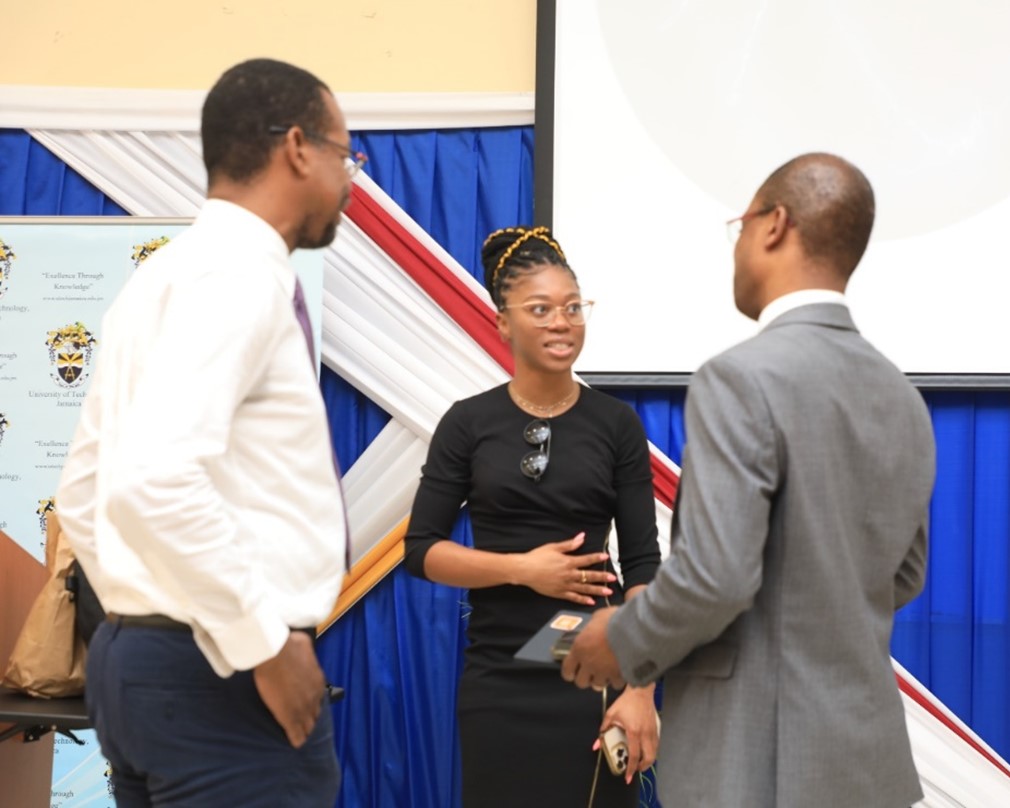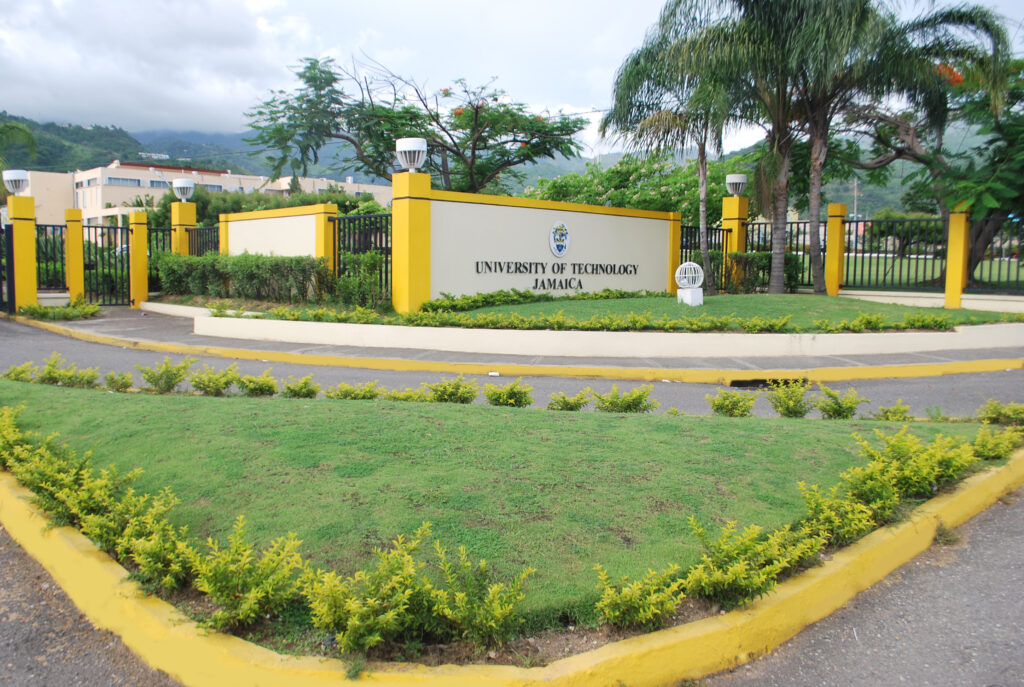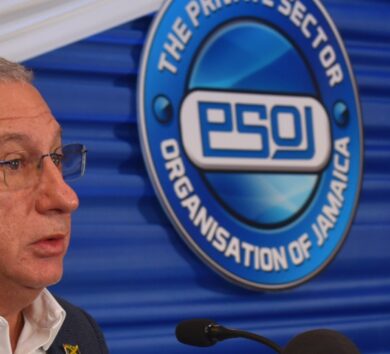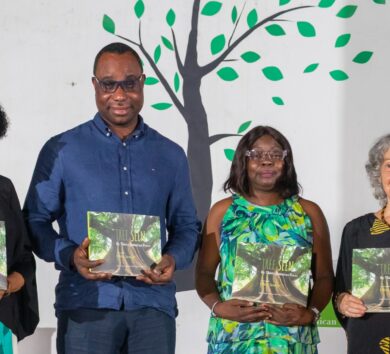

President of the University of Technology, Dr Kevin Brown, welcomed the “internationalization” of the dialogue on the possibilities of nuclear energy operations in Jamaica noting that, with other energy-secured countries having the discussion, Jamaica “needs to discuss how we are going to diversify our energy supplies.”
This he stated as “electrical energy is quite costly and it limits our economic growth.”
The president was speaking at the opening ceremony for the Small Modular Reactor (SMR) Nuclear Energy Symposium held on Monday, May 13, 2024, by the UTech, Ja’s School of Engineering at the university’s Papine Campus.
The Symposium was held in partnership with Anthropocene Institute, the University of Florida, the American Nuclear Society, The Nuclear Alternative Project, the International Center for Nuclear and Environmental Sciences and The University of the West Indies, Mona.
Students and educators from secondary schools within the vicinity of the UTech, Ja Papine Campus were also in attendance.

The three-day Symposium which culminated on Wednesday, May 15, was executed under the theme, Empowering Jamaica: exploring nuclear energy for sustainable growth and resilience.
It formed the second in a series of ongoing discussions led by UTech, Ja about diversifying Jamaica’s energy portfolio.
It followed a Nuclear Energy Forum held by UTech, Ja’s School of Engineering on Thursday, May 2 and comes against the backdrop of Cabinet’s 2021 mandate to the Ministry of Science Energy Technology and Telecommunications’ (MSETT) to explore avenues for incorporating nuclear energy in the island’s energy resource portfolio.
Sounding his optimism and support at the SMR Nuclear Reactor Symposium, Brown said with the lack of natural resources such as oil in Jamaica, “our future lies in other technologies including nuclear energy.”
He said that a direct positive outcome of this would be linked to reduction in electrical energy costs which by extension would “attract more industry to the country.”
Notwithstanding these benefits, he stressed the importance of having proper regulatory measures in place for the safe operation within the sector.

“Nuclear energy is expensive, but why this conversation, over the next three days is important is that at least Jamaica is getting ready to develop the policies and regulations so when in the future you do have a small modular reactor in the country, we will have the required regulations and policy to ensure that it is operated safely and in a sustainable way” he noted.
Head, School of Engineering, UTech Jamaica, Oniel Josephs noted that the University of “Jamaica stands ready to support any type of technology no matter how complex, that will enhance our productivity, its efficiency and its own development.”
He added that “the School of Engineering particularly stands ready to support the role out of nuclear energy when that time comes and so this is a process of learning…understanding and we have a number of international experts to help us to transition into that space.”

In his virtual address, president and co-founder, Anthropocene Institute, Carl Page, stated that “island countries can be energy independent” as, “you have all the materials you need to power your whole economy and be exporting products that involves energy.
Page also pointed out that SMRs should be considered as an the most environmentally viable options among island for both economic and environmental reasons.
He explained that research done in South Korea and China for nuclear power containerships “shows that the kind of reactor and scale that you would need in island countries is already going into production and most of these are dry reactors…dry means there is no water touching the fuel and the reason that you would prefer a dry reactor is that the limits on nuclear power mostly stem from the problem of what happens if water gets overheated.”
This is an important factor considering that water is a vital element used especially in the cooling process of traditional nuclear plant operations.
“If you need to solve a problem at scale, you don’t do it by building a giant machine” Page added, further noting that, “you just are not going to get a ten times cheaper energy system if you are relying on a wet reactor because it simply needs too much safety both in terms of equipment and also the security perimeter.”

During her presentation, Charlyne Smith, Nuclear Engineer, Electric Power Research Institute and Chair, organizing committee for the Small Modular Reactor (SMR) Nuclear Energy Symposium shared stated that some of the enabling attributes to be considered in selecting alternative energy sources such as nuclear includes “safety, environmental consequences (including materials, mining and waste), land footprint, lifetime [durability of the source] and cost.”
She however pointed out that no single source preforms well by itself, “what we are trying to do as much as we can is balance those attributes because the more diverse your energy grid, the more reliable and resilient it is.”
Smith also explained once the building out of nuclear energy technologies “driven by policies that incentivize people to put money into those then the prices of those technologies decrease.”
She also encouraged experts in the field to share their knowledge with others to alleviate apprehensions about safety and other concerns regarding nuclear operations. “It is really up to the folks that have had access to this type of training to be able to go out and then share the information themselves…in this session we are essentially looking at, let’s train the trainer and then the trainer can go and train other people…that’s kind of the model that we want to follow here.”







Comments